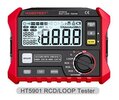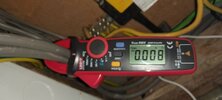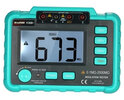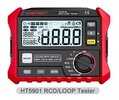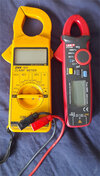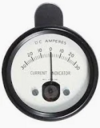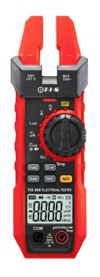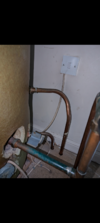Hi all
I moved into a new house last week, the CU didn't have any RCD protection so I had it replaced today (house is about 30 yrs old).
It's been ticking along fine but tonight I used kettle and microwave at same time and it tripped the RCD. I then tried some other appliances (toaster, air fryer) in various kitchen sockets and had same result. Things work ok to a point but seemingly when load increases the RCD trips.
My general understanding of this is there could be an earth fault somewhere on the circuit and when the load is increasing it's going above the 30mA level and tripping. Therefore it's likely there's some root cause issue somewhere.
I'm hoping to get a jump on identifying cause of issue, so to help I'm wondering if anyone can answer the following:
The side of the board that the RCD is protecting also has my upstairs sockets and cooker on it. Is it possible that the root cause issue is in one of these other circuits or - since the tripping is caused when using downstairs sockets specifically then the issue must be in this circuit?
I assume if I isolate the other MCBs and then this should be able to test this? This makes sense to me for a line to earth fault but would it also apply if I'm dealing with a neutral to earth?
I remember being told before that immersion heaters were prime culprits for this, I do have one of these but it wasn't actively heating at the time, is it possible that it's still a factor?
I think I can try to trial and error my way to locating the source of the fault, is there any risk in this in terms of permanently damaging the RCD or the circuit by constantly tripping?
The house has apparently had issues with a leak and also rodents in the past so I'm guessing that either of these could be a factor. The only appliance on the downstairs circuit that I think may be a factor is the fridge freezer that was left by the previous occupiers. Would these seem likely culprits?
Cheers
I moved into a new house last week, the CU didn't have any RCD protection so I had it replaced today (house is about 30 yrs old).
It's been ticking along fine but tonight I used kettle and microwave at same time and it tripped the RCD. I then tried some other appliances (toaster, air fryer) in various kitchen sockets and had same result. Things work ok to a point but seemingly when load increases the RCD trips.
My general understanding of this is there could be an earth fault somewhere on the circuit and when the load is increasing it's going above the 30mA level and tripping. Therefore it's likely there's some root cause issue somewhere.
I'm hoping to get a jump on identifying cause of issue, so to help I'm wondering if anyone can answer the following:
The side of the board that the RCD is protecting also has my upstairs sockets and cooker on it. Is it possible that the root cause issue is in one of these other circuits or - since the tripping is caused when using downstairs sockets specifically then the issue must be in this circuit?
I assume if I isolate the other MCBs and then this should be able to test this? This makes sense to me for a line to earth fault but would it also apply if I'm dealing with a neutral to earth?
I remember being told before that immersion heaters were prime culprits for this, I do have one of these but it wasn't actively heating at the time, is it possible that it's still a factor?
I think I can try to trial and error my way to locating the source of the fault, is there any risk in this in terms of permanently damaging the RCD or the circuit by constantly tripping?
The house has apparently had issues with a leak and also rodents in the past so I'm guessing that either of these could be a factor. The only appliance on the downstairs circuit that I think may be a factor is the fridge freezer that was left by the previous occupiers. Would these seem likely culprits?
Cheers


